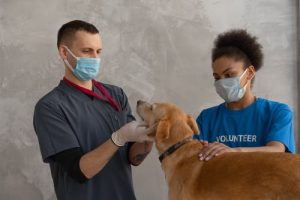
Pet Care: The Importance of Routine Veterinary Care for Your Pet
Having a pet is a wonderful moment, but it has responsibilities. A well-planned pet care routine can ensure that your pet is healthy and in good shape, which results in a joyful life for you and your furry companions. When you’re a pet parent, you’ll do everything you can to ensure your pet is content and healthy by participating in their daily routine. Use these six responsible pet care guidelines every year to ensure your pet’s long and happy life.
Six Essential Routine Veterinary Care
Veterinary practices offer insurance for accidents and illnesses pet insurance plans as an additional option to pet health and routine care plan, which makes it easy for pet owners to remain in control of the condition of their pets’ health. It is essential to schedule regular check-ups with your vet to ensure your pet is in good health. Here are six aspects of routine veterinarian care vital for the pet’s health.
1. Dental Care
Just like human beings, pets need dental care also. Even if you brush their teeth at least twice a day at home, routine cleaning using an ultrasonic scaling and polisher is required. It’s the same tool your dog dentist uses for your teeth every six months for your dental cleanings and examinations.
The fact is that it’s common for dogs and cats to suffer from gingivitis, dental calculus, and tooth rot due to the build-up of tartar and plaque. Regular dental cleanings must be initiated promptly to stop teeth from becoming decayed and getting worse.
2. Heartworm Prevention
In dogs, heartworms are the most common avoidable disease. Did you know that heartworms may be a problem for cats too? Mosquitoes carry the deadly heartworm virus from sick animals to your pet, so even pets living in the house are susceptible.
Each puppy and kitten must begin preventative measures before six months. Heartworm treatment can be expensive. There isn’t a treatment for cats; therefore, cats should be kept safe.
3. Vaccines
We all know the significance of vaccinations and why our pets require these. A simple vaccination can protect pups from fatal infections like Parvo and Distemper. Feline Leukemia Virus and Panleukopenia Virus in cats are both deadly.
Puppy and kittens need to receive all vaccines and essential boosters as they grow older to protect against illness. Even senior pets require boosters to stay current to prevent severe Lepto infections, crippling Lyme disease, and uncomfortable Bordetella (Kennel Cough) illnesses.
4. Tick and Flea Prevention
Insects and ticks can cause severe harm to your pet if they are not checked. If you do not remove these parasites, your pet’s health might be at risk. A variety of diseases can be transmitted through ticks, including Lyme illness, Babesia and Ehrlichia, and Rocky Mountain Spotted Fever.
They can also contain tapeworms which could then pass on to your pets. Each pet should be treated for fleas and ticks based on their area. Fleas and tick prevention is required throughout the United States, even for indoor pets.
5. Spay/Neuter
Many health problems, particularly complicated pregnancies, are avoided, and the number of unwanted animals is cut down through sterilization.
If the cat has been spayed (the reproductive organs are removed), the cat is less likely to be sexually active and goes off from the house in search of a partner. This is good for you, as it reduces her risk of developing cervical and ovarian cancers and keeps her from getting into “heat.”
It is recommended that you neuter the puppy to keep him from wandering through the neighborhood and developing testicular cancer. Neutering or spaying involves a procedure that requires general anesthesia. Your pet is likely to be held in a kennel overnight for monitoring and recovering reasons at the vet’s office. Learn more from Tucson veterinary surgeon.
6. Internal Medicine
If you think your pet suffers from an unusual or extremely rare condition and are concerned about it, it is best to see a small animal internal medicine specialist. Together with your veterinarian, you should seek a second, unbiased opinion to aid in making or confirming the diagnosis. Internal medicine exams can also benefit animals with complex or multiple medical issues and those that require 24-hour care.
Be aware that these rules aren’t just for the holidays. Incorporate them into your daily pet-parenting routines, and you and your pets will be reaping the benefits for many years to come.


